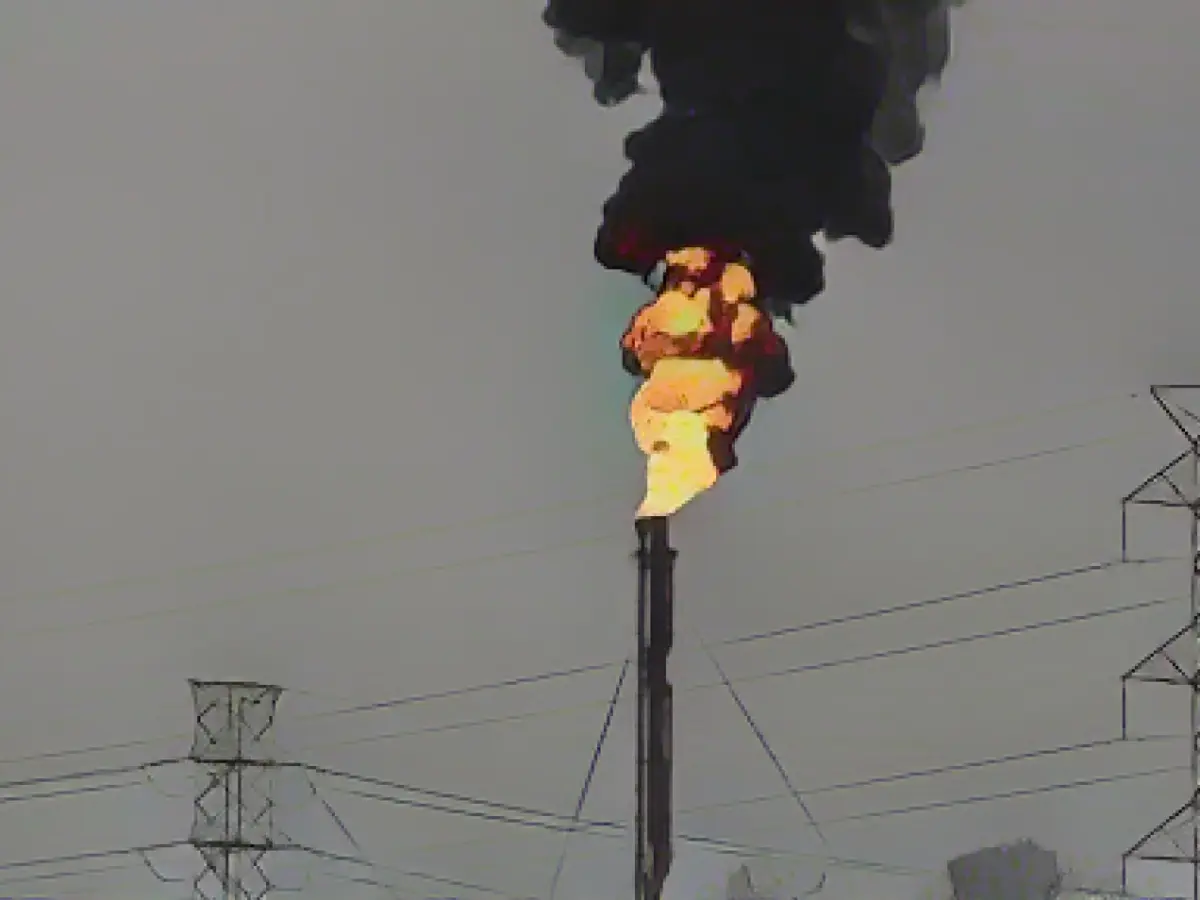Raw materials - Opec+ wants to cut oil production further
Members of the major oil cartel Opec+ intend to further reduce their production in the first quarter of next year. Following an online meeting, the grouping announced that the oil giants Saudi Arabia and Russia would maintain their existing restrictions of a total of 1.3 million barrels (159 liters each) per day until March. Six other members of the grouping will also cut their daily production volumes by almost 700,000 barrels of crude oil in the next quarter, it said.
Oil prices fell despite the cuts. A barrel of North Sea Brent crude for delivery in January cost 81.50 US dollars (74.79 euros) towards the evening. That was 1.38 dollars less than the previous day. The price of a barrel of US West Texas Intermediate (WTI) fell by a similar amount to 76.60 dollars. This is probably due to the fact that not all 20 Opec+ countries are participating in the supply reduction. Market observers speculated that there was a lack of unity.
Russia and Opec+ put their planned cuts at a total of 2.2 million barrels per day. However, this includes the extension of the current cuts by Saudi Arabia and Russia, as well as a planned reduction in exports of Russian refinery products.
Opec+ also announced that Brazil is to join the production association at the beginning of next year. The country is regarded as an up-and-coming oil producer that has steadily increased its production in recent years.
Criticism from the IEA
To date, ten states of the Organization of the Petroleum Exporting Countries (Opec) and ten other countries within the framework of Opec+ have agreed on production targets in order to support prices. The grouping, which is dominated by Saudi Arabia and Russia, produces around 40 percent of global oil supply, which amounted to around 102 million barrels per day in October.
The cartel's online meeting took place on the opening day of the World Climate Conference (COP28). Prior to this conference in Dubai, the UN Environment Program (UNEP) had pointed out that the planned global production volumes of oil, gas and coal were still well above the level that would be compatible with climate change mitigation.
The International Energy Agency (IEA), which was founded by industrialized countries, criticized in a report before the climate conference that the oil and gas sector was "watching from the sidelines" in the energy transition. The IEA called for an end to the search for new production areas and a drastic reduction in emissions from the transportation and extraction of raw materials.
OPEC Secretary General Haitham Al Ghais reacted angrily this week. "In a world where we need more dialog, it is not constructive to point the finger at others," he said in a statement. Global CO2 emissions should be reduced, but at the same time economic growth, social advancement and energy supply must be secured, emphasized Al Ghais.
Lesen Sie auch:
- Galeria twilight at Christmas time - who will grab it?
- Car driver crashes into truck: life-threatening injuries
- Despite the planned production cuts by Opec+, oil prices in Great Britain still saw a decrease.
- The decision to reduce oil production further by Opec+ members, including Saudi Arabia and Russia, could impact the crude oil prices in various raw material markets worldwide.
- The lack of unity among all 20 Opec+ countries in implementing the supply reduction could contribute to the ongoing volatility in oil prices.
- At the un climate conference, the International Energy Agency (IEA) criticized the oil and gas sector for not playing a more active role in the energy transition and for failing to reduce emissions from raw material extraction.
- The IEA, which was founded by industrialized countries, suggested an end to the search for new oil production areas and a drastic reduction in emissions from raw material extraction and transportation.
- Opec Secretary General Haitham Al Ghais responded to the IEA's criticism by emphasizing the need for economic growth, social advancement, and secure energy supply while also reducing global CO2 emissions.
- The upcoming join of Brazil in Opec+ as an up-and-coming oil producer could add to the overall oil production capacity of the cartel, potentially impacting global oil prices.
- The Vienna-based Organization of the Petroleum Exporting Countries (Opec) and the non-Opec countries in the framework of Opec+ control around 40% of the global oil supply, which amounts to around 102 million barrels per day.
- The planned global production volumes of oil, gas, and coal remain above the level that is compatible with climate change mitigation, according to the UN Environment Program (UNEP).
Source: www.stern.de








